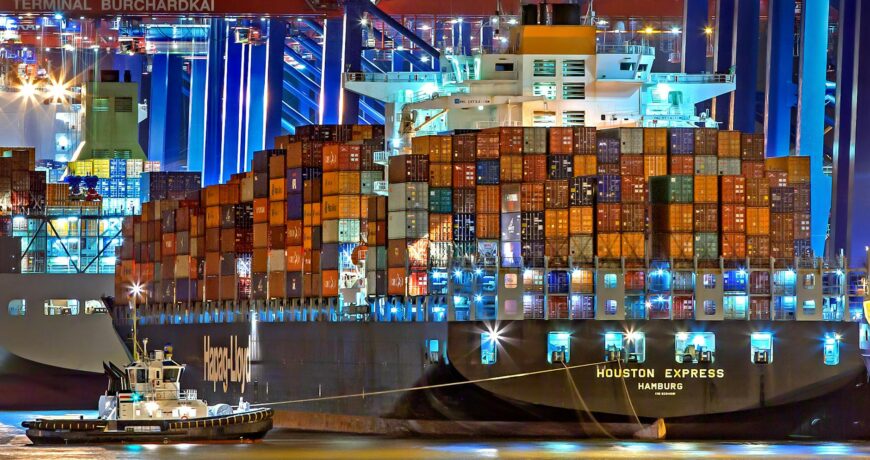
Unlocking Shipping Cargo Opportunities in Jepara, Indonesia: A Comprehensive Guide
Unlocking Success in Shipping Cargo in Indonesia: A Comprehensive Guide
In the bustling archipelago of Indonesia, the shipping cargo industry plays a vital role in facilitating trade and commerce both domestically and internationally. With its vast network of ports, extensive coastline, and strategic location, Indonesia is a key player in the global shipping arena. In this comprehensive guide, we will explore the ins and outs of shipping cargo in Indonesia, covering everything from its importance to challenges and solutions, and providing actionable insights for businesses and individuals involved in the industry.
Table of Contents:
- Introduction to Shipping Cargo in Indonesia
- Importance of Shipping Cargo Industry in Indonesia
- Challenges in Shipping Cargo in Indonesia
- Solutions and Innovations in Indonesian Shipping Industry
- Sustainable Practices in Indonesian Shipping Cargo
- Future Trends in Shipping Cargo Industry in Indonesia
- Conclusion: Navigating the Future of Shipping Cargo in Indonesia
1. Introduction to Shipping Cargo in Indonesia
Indonesia, with its vast archipelago consisting of over 17,000 islands, is heavily reliant on maritime transportation for the movement of goods and commodities. The shipping cargo industry in Indonesia encompasses a wide range of activities, including freight forwarding, port operations, and logistics management, all of which are crucial for sustaining the country’s economic growth and development.
2. Importance of Shipping Cargo Industry in Indonesia
The shipping cargo industry plays a pivotal role in Indonesia’s economy, serving as the backbone of its trade and commerce activities. With over 90% of the country’s trade volume being transported by sea, Indonesia relies heavily on maritime transportation to import and export goods to and from various parts of the world. Additionally, the shipping cargo industry provides employment opportunities for thousands of Indonesians, from seafarers to port workers, contributing to the country’s socio-economic development.
3. Challenges in Shipping Cargo in Indonesia
Despite its significance, the shipping cargo industry in Indonesia faces several challenges that hinder its growth and efficiency. These challenges include inadequate infrastructure, congested ports, inefficient customs procedures, and maritime safety concerns. Additionally, the archipelagic nature of Indonesia presents logistical challenges, such as inter-island connectivity and last-mile delivery issues.
4. Solutions and Innovations in Indonesian Shipping Industry
To address these challenges, the Indonesian government and industry stakeholders have been implementing various solutions and innovations to improve the efficiency and reliability of the shipping cargo industry. These include infrastructure development projects, digitalization of port operations, implementation of advanced tracking and monitoring systems, and streamlining of customs procedures. Furthermore, public-private partnerships and investments in human capital development are crucial for driving innovation and modernization in the industry.
5. Sustainable Practices in Indonesian Shipping Cargo
With growing concerns about environmental sustainability, the shipping cargo industry in Indonesia is increasingly focusing on adopting eco-friendly practices and technologies. From the use of alternative fuels to the implementation of energy-efficient technologies, Indonesian shipping companies are exploring ways to reduce their carbon footprint and minimize environmental impact. Additionally, initiatives such as sustainable fisheries and marine conservation efforts are essential for preserving Indonesia’s rich maritime biodiversity.
6. Future Trends in Shipping Cargo Industry in Indonesia
Looking ahead, several key trends are expected to shape the future of the shipping cargo industry in Indonesia. These include the adoption of digital technologies such as blockchain and IoT for supply chain management, the expansion of e-commerce and cross-border trade, and the development of green shipping initiatives. Furthermore, investments in infrastructure development, human capital, and regulatory reforms are essential for ensuring the sustainable growth and competitiveness of the Indonesian shipping cargo industry.
7. Conclusion: Navigating the Future of Shipping Cargo in Indonesia
In conclusion, the shipping cargo industry plays a crucial role in Indonesia’s economy, facilitating trade and commerce and connecting the archipelago with the rest of the world. By addressing challenges, embracing innovation, and adopting sustainable practices, Indonesia can unlock the full potential of its shipping cargo industry and position itself as a maritime powerhouse in the region. Whether you are a business owner, logistics manager, or industry enthusiast, the insights provided in this guide will help you navigate the complexities of shipping cargo in Indonesia and capitalize on emerging opportunities for growth and success.
Conclusion:
In conclusion, shipping cargo is a cornerstone of Indonesia’s economy, powering its trade and commerce activities and connecting the archipelago with the global market. By understanding the importance of the shipping cargo industry, addressing challenges, and embracing innovation and sustainability, Indonesia can harness the full potential of its maritime resources and achieve greater prosperity and resilience in the years to come. Whether you are a business owner, government official, or industry stakeholder, it is essential to work together to navigate the future of shipping cargo in Indonesia and build a brighter and more sustainable future for all.
